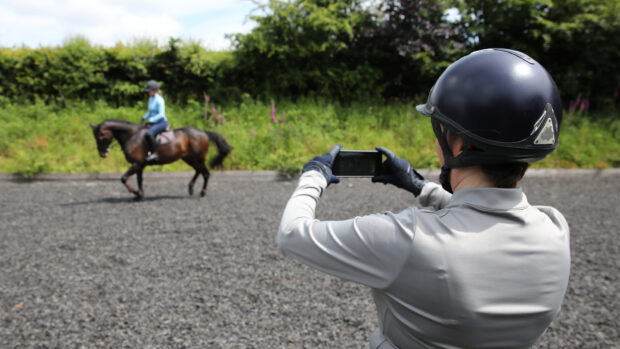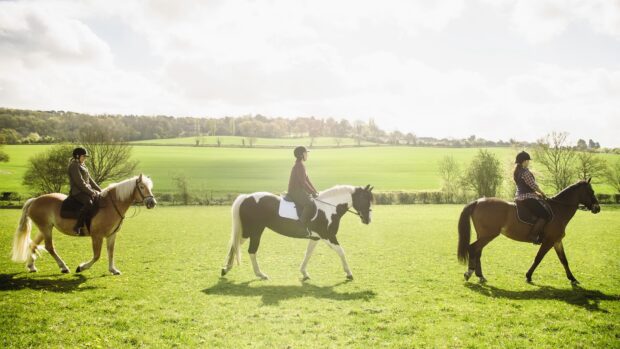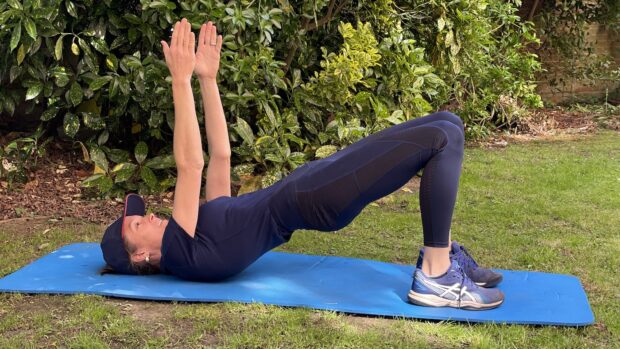A rider’s lack of flexibility, strength and fitness can severely limit their ability to perform, but by following the exercises in our fitness videos, a relatively small investment in time can have far reaching positive effects on your performance as a rider. Here’s how to improve your horse riding upper body position, thanks to some expert advice…
You should warm up your muscles by taking a brisk walk, or similar, after riding before performing any of these exercises. If you suffer any ongoing physical issues, we recommend you speak to a health professional before you start.
Each exercise is shown at three different levels of difficulty, so you can choose the version that is most suitable to your current physical condition and then progress through the levels as you improve.
How to improve your horse riding upper body position
Being able to maintain your upper body position during transitions, both between and within the pace, is key to enable your horse to perform at their best. These exercises are designed to strengthen your rhomboids, trapezius and deltoids, which are the key muscles needed for upper body strength and stability when riding.
Exercise one: chin tucks
A series of stretches to strengthen your deep neck flexors, enabling you to position your head correctly and consistently, leading to better weight distribution in the saddle. A poor head position from the rider can unbalance the horse.
Exercise two: TYI
By strengthening your shoulders and upper back, you can develop a more open chest and avoid those dreaded rounded shoulders. This will improve your posture and your ability to control your upper body while in the saddle.
- Don’t have a resistance band with handles? Try this one from amazon.co.uk
Exercise three: swan dive
Free up any tightness in the upper back with these thoracic extension exercises to stablise the spine, trapezius and rhomboids. This will serve to improve your posture and weight distribution while riding.
About Dee Holdsworth
Dee is the founder of Dynamic Sports Therapy. A keen rider, she has competed at national level and was part of the small stables team at the London 2012 Olympics. Dee works with some of the world’s leading horse and rider combinations, including some of those on track for Rio 2016.
Dee is an equestrian sports science graduate from Hartpury College and went on to complete the International Therapy Examination Council Diploma in equine sports massage, delivered by veterinary chartered physiotherapist Mary Bromiley, and now stands as the ESMA Chairman.
Dee is a level four sports massage therapist with the Sports Massage Association. She also holds certificates in human and equine kinesiology taping and muscle energy techniques, as well as using deep oscillation therapy.
This video is brought to you in association with fitnesstroop.co.uk (Katie Brighton-Jones), shadowplay.co.uk (Philip E James) and performbetter.co.uk.
You might also be interested in:

Three simple exercises to get you started on your riding fitness journey
H&H’s 12 days of fitness: improve your leg strength

Subscribe to Horse & Hound magazine today – and enjoy unlimited website access all year round
Horse & Hound magazine, out every Thursday, is packed with all the latest news and reports, as well as interviews, specials, nostalgia, vet and training advice. Find how you can enjoy the magazine delivered to your door every week, plus options to upgrade your subscription to access our online service that brings you breaking news and reports as well as other benefits.


